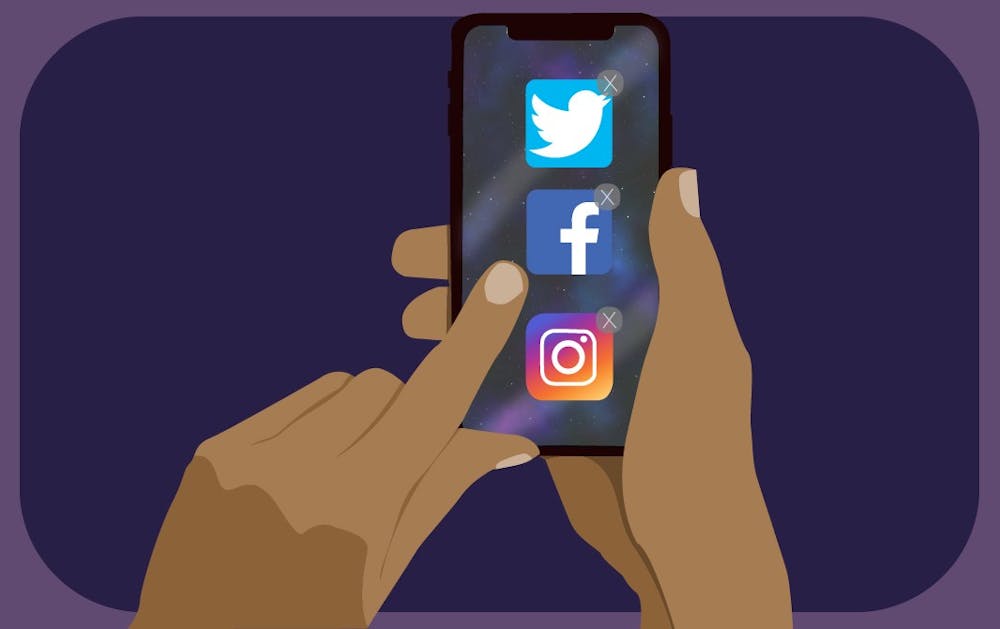At the beginning of last week, I took a challenge to abstain from social media for a week. The challenge was appealing: in an age so dominated by the use of social media, I wondered what the world would look like through a lens unclouded by the looming sphere of Facebook and Twitter.
Preceding the challenge, I had this impending sense of dependency: It felt as if I deleted my social media folder on my phone, my entire system of friends would shatter instantaneously. My conclusion was to test the effects of removing social media, so I set out on the week-long challenge and deleted every social media app on my phone.
The failure was almost comical.
I lasted no more than 16 hours without logging onto Facebook, and I was angry toward myself. I thought I'd be able to break myself from the digital cloud for at least a week, but the results were surprising. I had never realized the true extent to which social media had been ingrained into my life. It's a dominant force in bringing about interpersonal engagement in my daily experience — and that thought is frightening to me.
In following through on my apparent failure, I couldn’t help but ponder the possible implications of this dependency. How was social media affecting my life, positively or negatively? What do we lose or gain from this?
The pressure to maintain a continuous online presence greatly saps our mental resources. Usually, my Facebook binge sessions strike out of nowhere and without notice and are always deceptively long. At times I’ll spend hours foraging through the depths of my Twitter feed, only to leave the expedition feeling drained and ironically disconnected.
Throughout the week of the challenge, though, my time usage for social media did decrease, and the effects are immediate and obvious.
In my life, it often feels as though social media creates this false, digitized reality where everything exudes a false sense of perfection — it’s a utopia.
While I'm spending hours and hours almost daily scrolling through wall posts and timelines, I'm never engaging meaningfully or allocating that time for genuine connection in real life.
My time spent mind-numbingly blurring my vision with viral videos deprives me of two fundamental needs: the need for connection and the ability to connect.
I spend so much time interacting on a purely digital level, my mental reality and my lens of view are both distorted by this shifted and false reality. My near-constant use of social media leaves me feeling lonely, dissatisfied with life and disillusioned with reality.
I know stable and meaningful change takes time, however, the urgency of the social media problem is valid and significant.
My mind pictures a separate plane of existence from the current social media culture we live in — a simpler time with an easier ability to focus on important matters, and we are connected to the reality lying right before us.
The solution is obvious — to delete all social media — but worries and excuses run rampant through my head, and I’m unsure if I’d be able to remove myself from the magnet-like attraction digital communication has to offer. Though I want to, I worry extensively about maintaining connection in a culture dependent on social media. I worry I will lose my friends, and I won't be able to satisfy my needs. Shouldn’t the life I have be enough?
Reach the reporter at cbeal4@asu.edu and follow @beal_camden on Twitter.
Like The State Press on Facebook and follow @statepress on Twitter.




